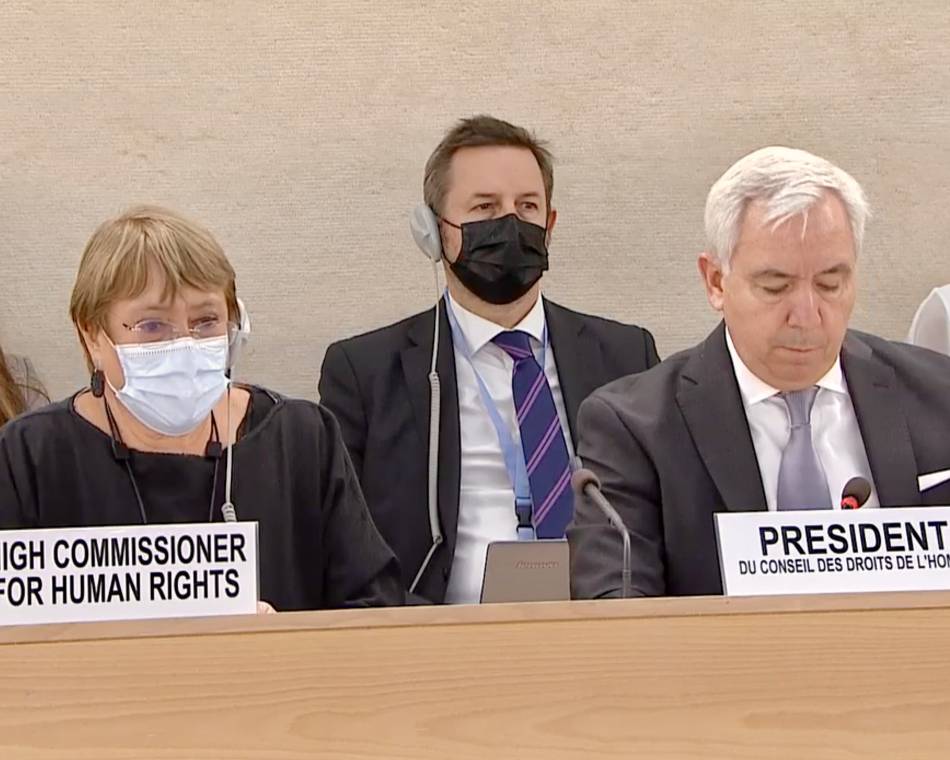GENEVA (AN) — The U.N. Human Rights Council voted 32-2 on Wednesday to authorize the creation of a three-member commission of inquiry that will monitor and investigate all "abuses and violations of international humanitarian law" resulting from the Russian invasion of Ukraine.
Many nations' delegates, wearing the colors of Ukraine's yellow-and-blue national flag, spoke against Russia's week-long attack on its neighbor.
Russia and Eritrea were the only two countries in the 47-nation council that opposed the measure, which also condemned the invasion and demanded that Russia withdraw from Ukraine in a "swift and verifiable" manner. Another 13 nations, including China, India, Pakistan and Sudan, abstained from the vote. The council also called for humanitarian workers to be allowed unimpeded access and held a minute of silence for Ukraine's victims.
An independent international commission of inquiry made up of three human rights experts will be appointed to one-year terms by the council's president.
Their mandate will be to, among other things, "investigate all alleged violations and abuses of human rights and violations of international humanitarian law, and related crimes, in the context of the Russian Federation’s aggression against Ukraine, and to establish the facts, circumstances, and root causes of any such violations and abuses; and to make recommendations, in particular on accountability measures, all with a view to ending impunity and ensuring accountability," the council said.
#HRC49 | The @UN🇺🇳 Human Rights Council adopted a resolution calling for the "swift and verifiable" withdrawal of #Russian🇷🇺 troops and Russian-backed armed groups from the entire territory of #Ukraine🇺🇦.
— UN Human Rights Council (@UN_HRC) March 4, 2022
Watch the video of the adoption of the VOTE⤵️ pic.twitter.com/hrWtaGeHHn
False claims
Diplomats observed a minute of silence during the council session in honor of the war's victims.
Ukraine's U.N. Ambassador in Geneva, Yevheniia Filipenko, said the commission of inquiry fulfills nations' “common duty to ensure accountability" for Russia's crimes. “This is the only way to ensure that such blatant dereliction of human rights values, which we deeply share cherish, will never repeat itself in any place of the world," she said.
Evgeny Ustinov, a first counselor in Russia's U.N. mission in Geneva, said his nation did not oppose holding the minute of silence but hoped it also would honor the "thousands of people who have been killed and maimed" in Donbas by Ukrainian authorities — a false claim. Russia's President Vladimir Putin similarly asserted without evidence that "genocide" is occurring in the Donbas region, where Russia-backed separatists have fought a war with Ukrainian forces since 2014.
An OSCE monitoring mission that has operated in Ukraine since 2014 has found no evidence of mass targeting of civilians in Donbas, a predominately Russian-speaking industrial area of Ukraine that borders Russia and is an important steel and coal producer.









